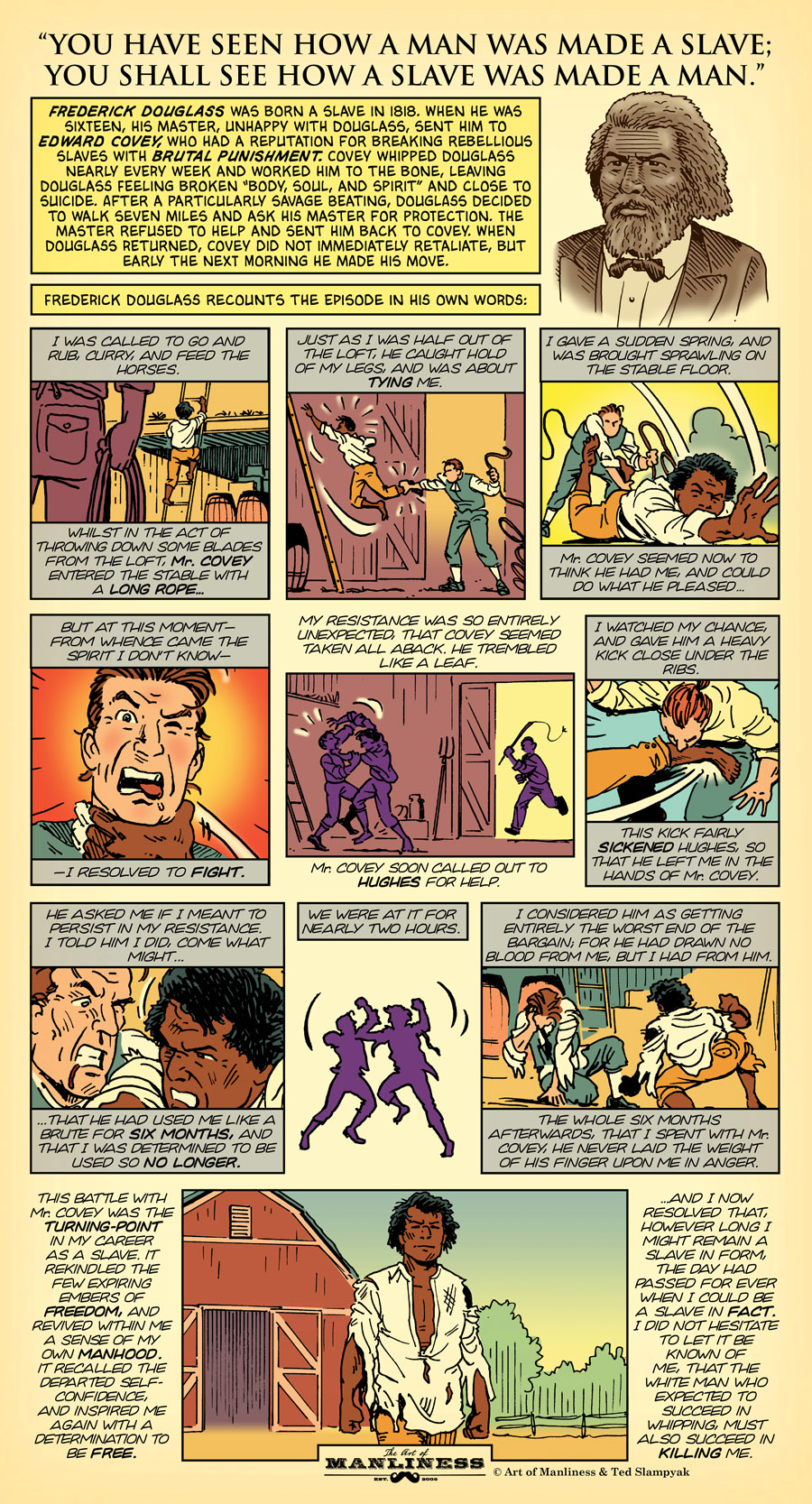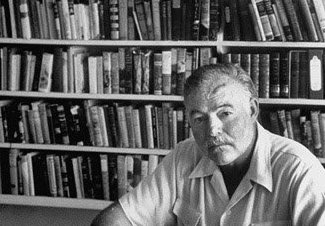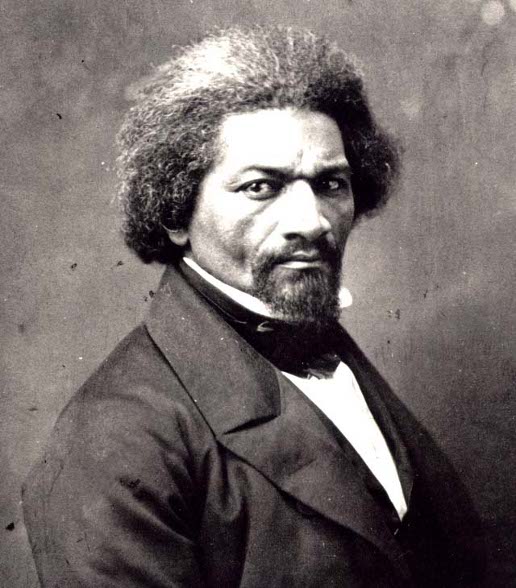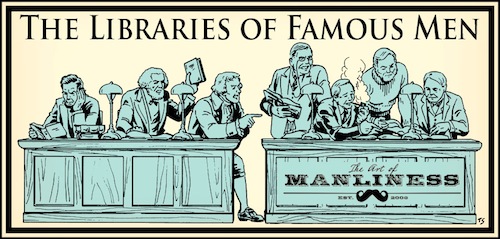
Welcome back to our series on the libraries of great men. The eminent men of history were often voracious readers and their own philosophy represents a distillation of all the great works they fed into their minds. This series seeks to trace the stream of their thinking back to the source. For, as David Leach, a now retired business executive put it: “Don’t follow your mentors; follow your mentors’ mentors.”
Frederick Douglass was born into slavery. Before him, many white men didn’t think it was possible for a black man to have any intellectual rigor; for a black man to be able to think for himself in an intelligent way. When Douglass was around 20, he escaped his shackles and began life anew as a free man. From that point on, he gave his full attentions to educating himself, which he believed was a necessary component of all individual achievements and the ability to create real change in the world. It was a truth he understood from his own personal, hard-fought struggle: up from slavery, he rose to become one the foremost leaders in America in the abolitionist and women’s rights movements, as well as one of the most celebrated orators and writers of his era.
None of that would have been possible without his personal library.
Douglass was taught to read around the age of 12 by Sophia Auld, the wife of one of his masters. Mrs. Auld did this in spite of a Maryland law that prohibited teaching reading skills to slaves. Mr. Hugh Auld strongly disapproved, believing that if a slave learned to read, he would become dissatisfied with his condition and would begin to desire freedom. Even a slave owner, or perhaps especially a slave owner, understood that knowledge equaled power and will. Eventually, Mrs. Auld gave in to her husband’s admonitions and resigned herself to the idea that slavery and education were incompatible. Her tutoring came to an abrupt end one day when she snatched away a newspaper Douglass was trying to read.
Undaunted, Douglass continued to hone his reading skills on his own, in secret. He read anything he could get his hands on — newspapers, political pamphlets, novels, textbooks. He even credits one particular collection, The Columbian Orator, with clarifying and defining his views on freedom and human rights.
Douglass wished to rise in the world, and he fervently believed the path of self-reliance was the only way up. It was not luck or circumstances that determined man’s success, he argued, but how hard and how consistently he worked. Nothing valuable could ever be gotten for nothing or from waiting around for others to make things happen for you. “The man who will get up will be helped up; and the man who will not get up will be allowed to stay down,” he preached. He understood that no one else could shovel knowledge into his brain; it was up to him to pry it out of as many books as he could. Whatever knowledge he secured to himself, could never be taken away by another.
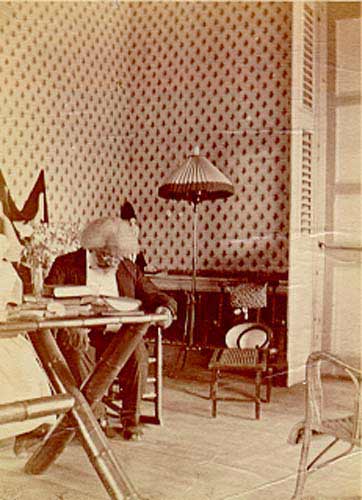
Ultimately, then, for Frederick Douglass reading meant freedom.
His ability to read a text, to synthesize that information, and then let it change his thoughts and compel him to action directly led to his fight against slavery, both as an individual man seeking his own freedom, and later as a statesman, fighting for the rights of his fellow man. A single man’s desire to read and attain knowledge changed the landscape of America forever.
Throughout his life, Douglass’s library would grow, and it now serves as a great insight into his thoughts and beliefs. In reading through the list, you get an idea of how incredibly wide-read Douglass was. We see everything from classic Christian pieces, to abolitionist texts, to popular novels of the time, to history and science textbooks, and even seemingly random works on subjects like the dental arts and knitting(!).
If you don’t recognize the name of an author you see below, I encourage you to do some Googling (like I did!) in order to find out more about these works that are contained to this day in Douglass’s library. This list is a fascinating trove of knowledge that played a crucial part in the history of this nation.
You can view his library by visiting Cedar Hill in Washington, D.C., which was Douglass’s home for the final 20 years of his life, and was turned over to the National Park Service in 1962. This list below features about 85 books of the thousands listed in his library’s register.
Before you dig in, I’ll leave you with a quote from Douglass’s incredibly inspiring “Self-Made Men” speech, that attests to the value he put in reading. To read, and simply forget, is to have never read at all. Let the reading you do change you for the better, and let it compel you to action to make the world a better place. If you do so, you’ll make ol’ Douglass proud.
“We have all met a class of men, very remarkable for their activity, and who yet make but little headway in life; men who, in their noisy and impulsive pursuit of knowledge, never get beyond the outer bark of an idea, from a lack of patience and perseverance to dig to the core; men who begin everything and complete nothing; who see, but do not perceive; who read, but forget what they read, and are as if they had not read; who travel but go nowhere in particular, and have nothing of value to impart when they return.”
A Selection of Books from Frederick Douglass’s Personal Library
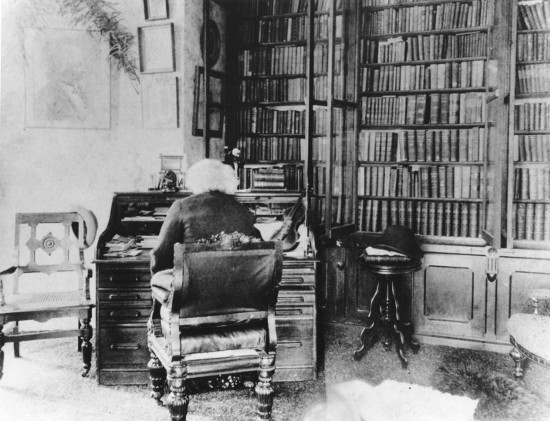
| Title | Author |
| Cosmos: A Sketch of the Physical Description of the Universe | Alexander von Humboldt |
| The Count of Monte Cristo | Alexandre Dumas |
| The Three Musketeers | Alexandre Dumas |
| Poems | Alfred Lord Tennyson |
| A Thousand and One Nights | |
| Henrietta Temple: A Love Story | Benjamin Disraeli |
| Bleak House | Charles Dickens |
| Cricket on the Hearth | Charles Dickens |
| ‘Three Score Years and Ten’ Life-Long Memories of Fort Snelling, Minnesota, and Other Parts of the West | Charlotte Van Cleve |
| Orations | Cicero |
| Missionary Travels and Researches in South Africa | David Livingstone |
| Hesiod and Theognis | (Davies translation) |
| The Steam Engine Explained & Illustrated | Dionysius Lardner |
| History of the Decline and Fall of the Roman Empire | Edward Gibbon |
| Journal of a Residence on a Georgian 1863 Plantation | Frances Anne Kemble |
| A Journey Through Texas | Frederick Law Olmsted |
| Mary Stuart: A Tragedy | Friedrich Schiller |
| An Egyptian Princess | Georg Ebers |
| Memorial Address on the Life of Abraham Lincoln | George Bancroft |
| Romola | George Eliot |
| The Journal of George Fox | George Fox |
| An Overland Journey Round the World | George Simpson |
| Works of Harriet Beecher Stowe | Harriet Beecher Stowe |
| Incidents in the Life of a Slave Girl | Harriet Jacobs |
| Complete Works of Henry Fielding | Henry Fielding |
| History of Civilization in England | Henry Thomas Buckle |
| Notes from Plymouth Pulpit | Henry Ward Beecher |
| History of the Rise and Fall of the Slave Power in America | Henry Wilson |
| The Study of History in American Colleges and Universities | Herbert Adams |
| The Iliad | Homer |
| The Odyssey | Homer |
| The American Conflict | Horace Greeley |
| Natural History of Enthusiasm | Isaac Taylor |
| Music and Some Highly Musical People | James Trotter |
| Napoleon: His Army and His Generals | Jean Charles Dominique De Lacretelle |
| The Confessions | Jean-Jacques Rousseau |
| The Sorrows of Young Werther | Johann Wolfgang von Goethe |
| The Farm and the Fireside; Or the Romance of Agriculture. | John Blake |
| Works of John Greenleaf Whittier | John Greenleaf Whittier |
| Poetical Works of John Keats | John Keats |
| The Rise of the Dutch Republic | John Lothrop Motley |
| The Life of Rev. John Wesley | John Whitehead |
| Journal of John Woolman | John Woolman |
| The Science of Government | Joseph Alden |
| Reminiscences of Levi Coffin | Levi Coffin |
| Don Juan | Lord George Byron |
| Works of Lord Byron | Lord George Byron |
| Memoirs of the Court of Queen Elizabeth | Lucy Aikin |
| The Essence of Christianity | Ludwig Feuerbach |
| Meditations | Marcus Aurelius |
| A Popular Treatise on the Teeth: Containing a History of the Dental Art | Mayo Smith |
| Plain Truths About Stock Speculation: How to Avoid Losses in Wall Street | Moses Smith |
| The Scarlet Letter | Nathaniel Hawthorne |
| The Vicar of Wakefield | Oliver Goldsmith |
| The Autocrat of the Breakfast Table | Oliver Wendell Holmes |
| Pushing to the Front, Or Success Under Difficulties | Orisen Swett Marden |
| The Life and Letters of Washington Irving | Pierre Irving |
| Pictorial Guide to Chicago | Rand McNally |
| The Farmer’s Boy: A Rural Poem | Robert Bloomfield |
| Poems and Songs | Robert Burns |
| The Life of William Wilberforce | Robert Isaac Wilberforce |
| Knitting Work: A Web of Many Textures | Ruth Partington |
| Complete Works of Sir Walter Scott | Sir Walter Scott |
| Narrative of Sojourner Truth | Sojourner Truth |
| Twelve Years A Slave | Solomon Northup |
| History of Woman Suffrage | Susan B. Anthony |
| History of Frederick the Great | Thomas Carlyle |
| The African Slave Trade and Its Remedy | Thomas Fowell Buxton |
| The Modern British Essayists | Thomas Macaulay |
| Les Miserables | Victor Hugo |
| The Age of Louis XIV | Voltaire |
| The Life and Voyages of Columbus | Washington Irving |
| Brigham’s Destroying Angel | Wild Bill Hickman |
| Slave Songs of the United States | William Francis Allen |
| Exlporation of the Valley of the Amazon | William Lewis Herndon |
| The Words of Garrison | William Lloyd Garrison |
| History of Pendennis | William Makepeace Thackeray |
| Roundabout Papers | William Makepeace Thackeray |
| Autobiography of William Seward | William Seward |
| The Complete Works of Shakespeare | William Shakespeare |
| Narrative of William Brown, A Fugitive Slave | William Wells Brown |
| Selected Poems | William Wordsworth |
| Constitution of the United States | |
| Encyclopedia Britannica | |
| English Bible |


